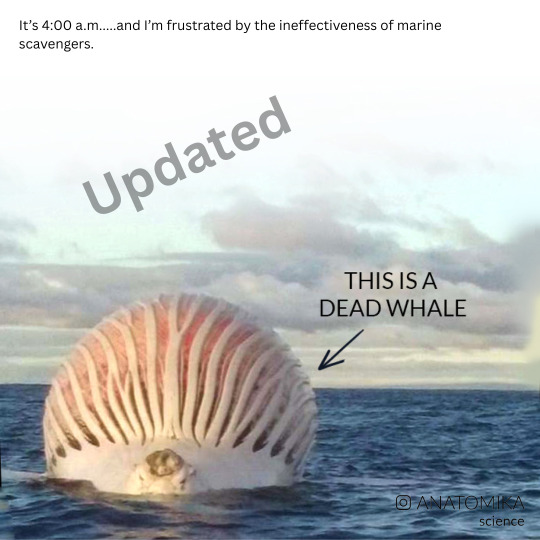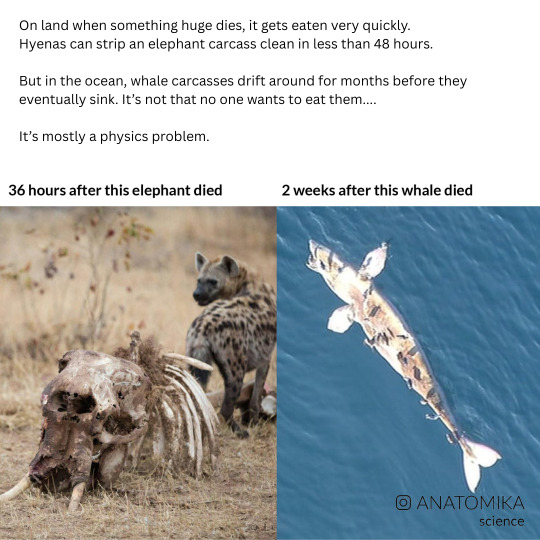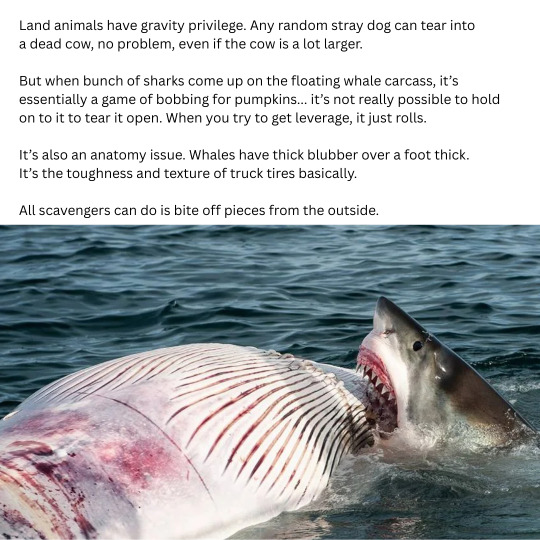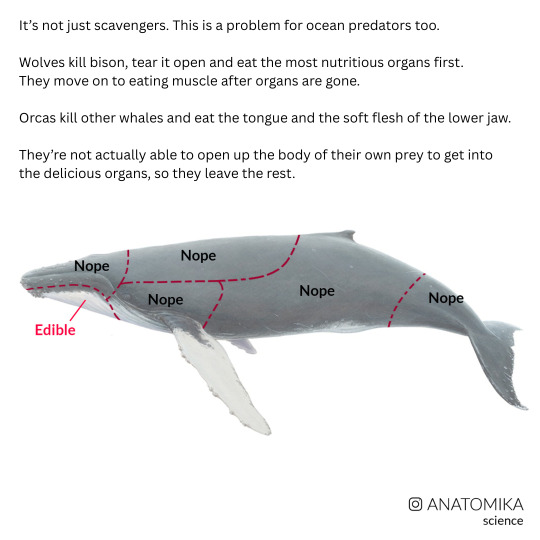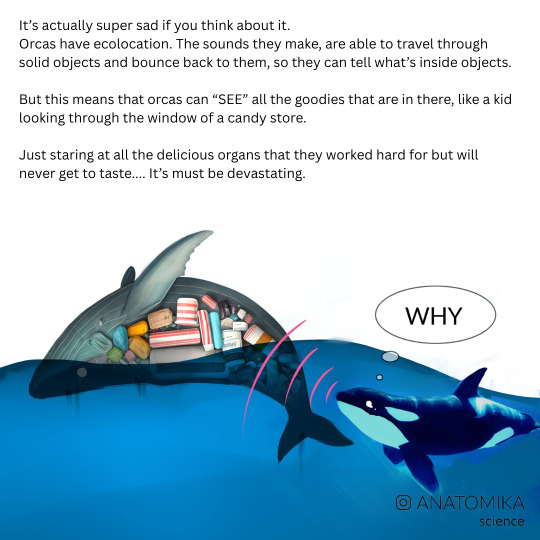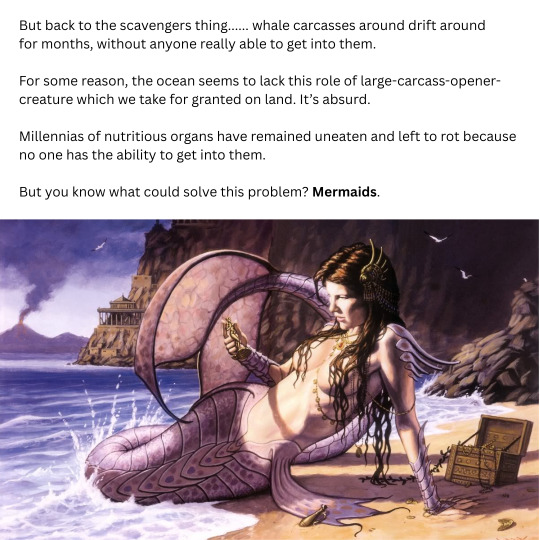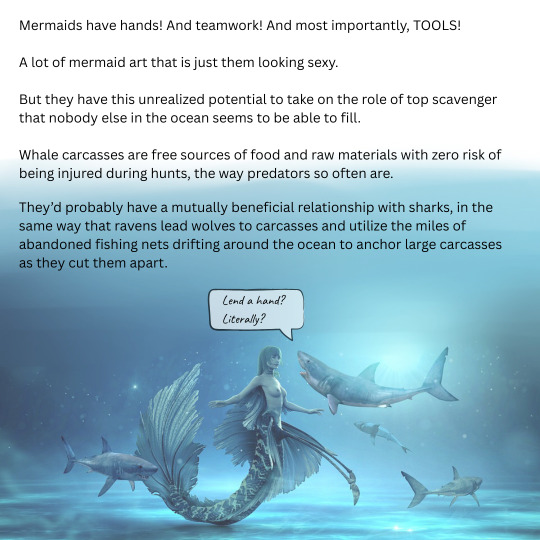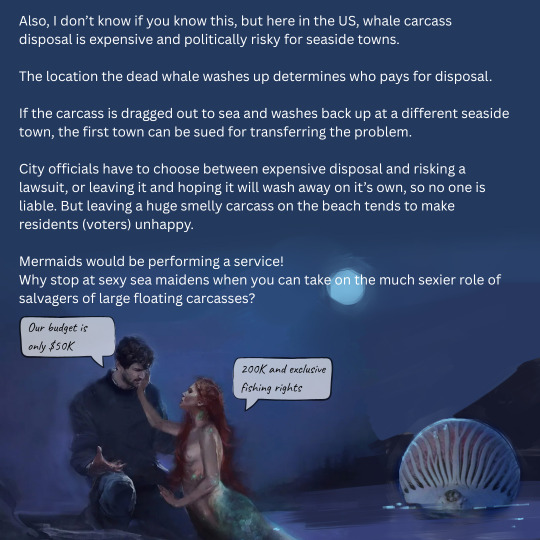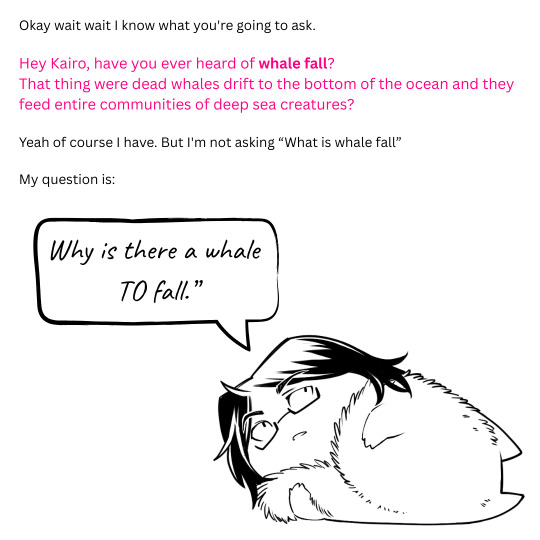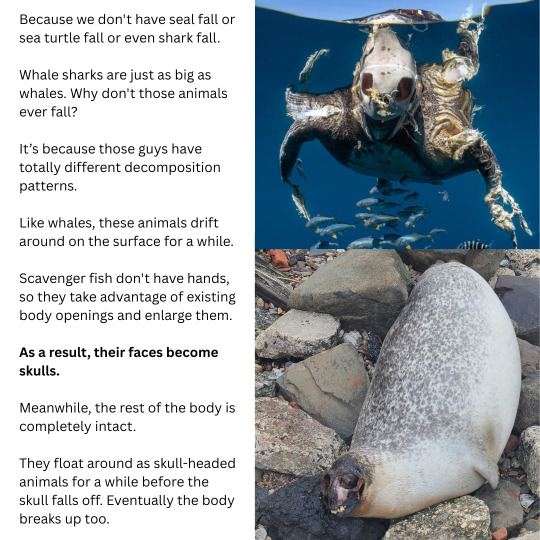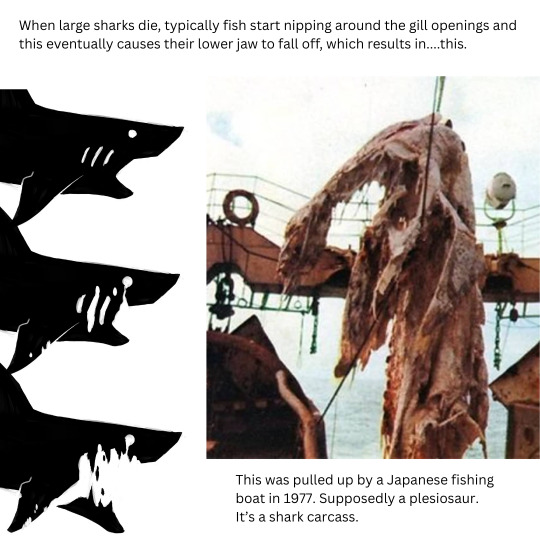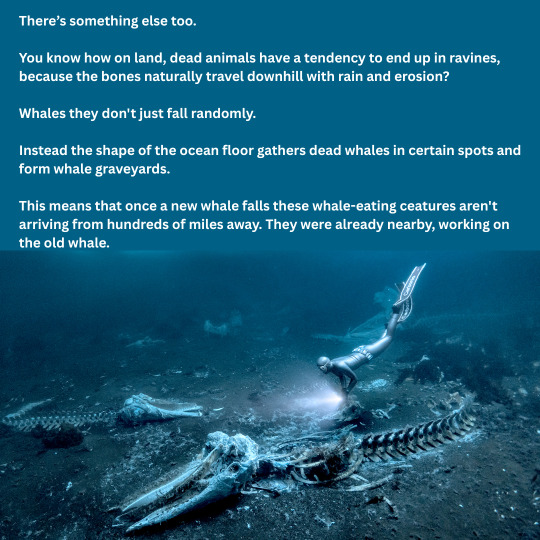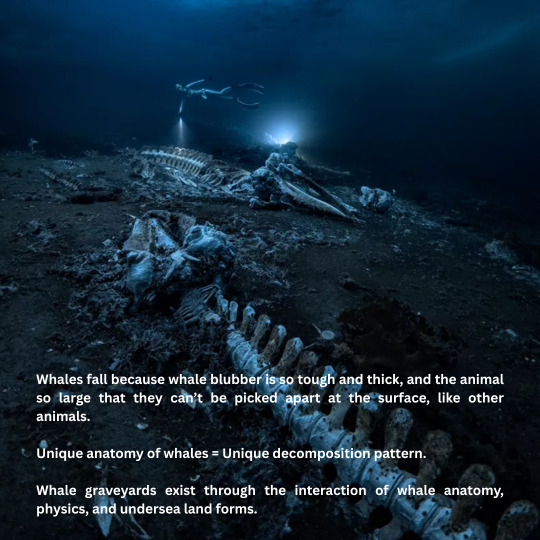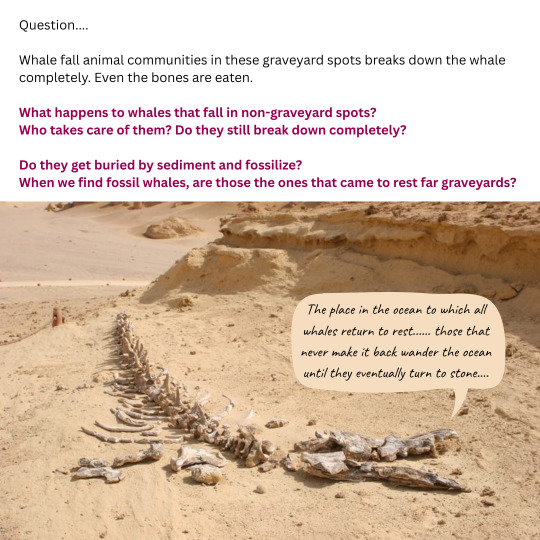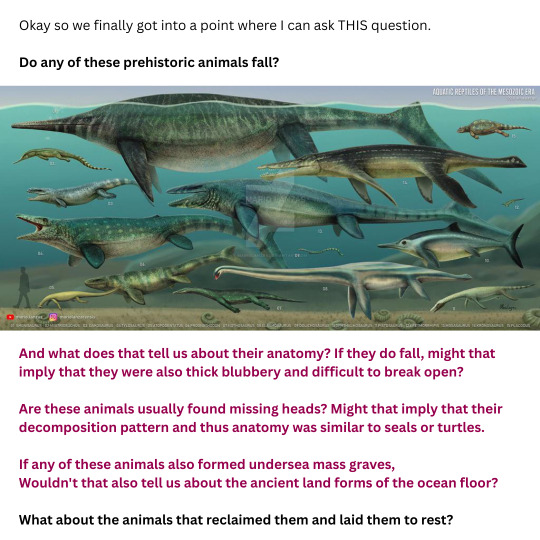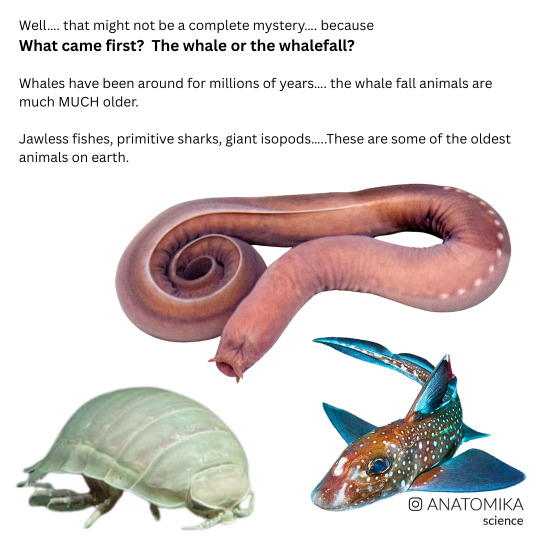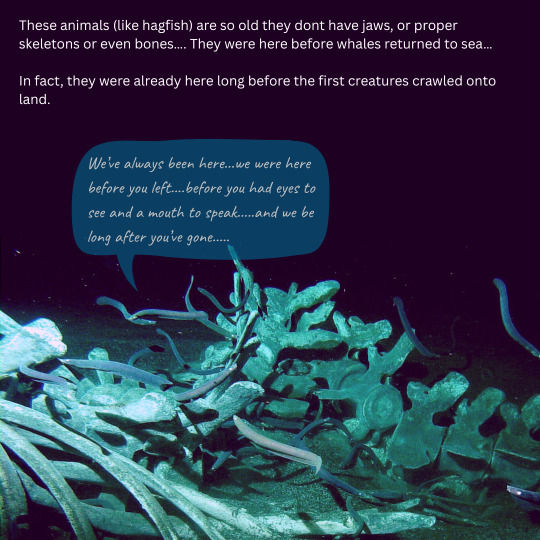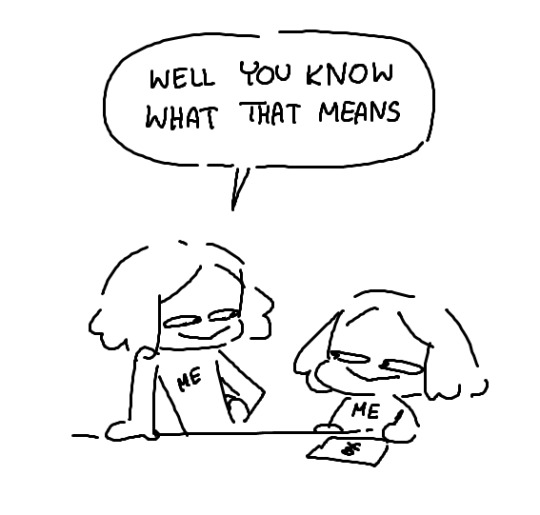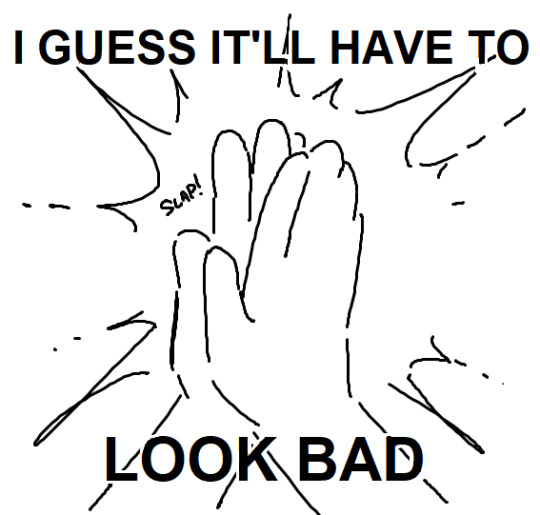A lost changeling who really just wants to gnaw old bones and sleep in a tree. Ace, autistic, survivor, trans (they/them), Lokean, veteran (but very anti-military), anti-fascist and loosely ancom. I write stories and poetry, compose music, draw, dance in thunderstorms, talk to animals (and plants, and bodies of water), and care way, way too much for my own good. Lokean/heathen account is skytreaders-stormwitch. ACNH account is island-of-loptland. ACAB, Nazis/TERFs/SWERFs/MAPs fuck off.
Don't wanna be here? Send us removal request.
Text
I am such a strong supporter of people with PCOS being considered intersex, even as someone who has ambiguous genitalia & doesn't have PCOS. it's such a no-brainer to me? like duh! people with PCOS are treated like they are intersex and have characteristics about their body that developed naturally over time that they can point to in order to support this. what more do you want? what more do you want them to prove?
being intersex is largely an experience. if you were AFAB and have ovaries but then start growing facial hair and experiencing other expressions of hyperandrogenism you are going to be met with societal stigma, with attempts from everyone around you including doctors to suppress your intersex characteristics, etc. why are we denying the people whose experiences are just like ours a place in a community who can support them, who can show them that they are loved and their body is loved, that they don't have to change a thing about themselves if they don't want to?
it's gatekeepy bullshit.
"oh but PCOS is common!" and intersexuality is not rare.
the more I read about the experiences of people with PCOS the more I come to understand that they are my intersex siblings. they belong here and I will always support their presence in my community.
so dear people with PCOS,
you are loved and supported here. there are people who will go to bat for you and your right to find a home in this community. you are intersex and your intersexuality is beautiful.
#thank you#tbh I'm always a little uncertain in intersex spaces bc there are people who spout gatekeeping bullshit#but when it comes to the actual communities of intersex people I have always been welcomed there time and again#and I am so grateful for that
2K notes
·
View notes
Text
Comedy version of Hamlet which opens with an extended bit involving various characters seeing the King's ghost and trying to figure out who they can pass the buck to because this is not going to be their problem.
2K notes
·
View notes
Text
My work boots are the most expensive shoes I’ve ever owned.
Also the most comfortable. I chose them after trying on several different brands and comparing lifespan vs usage vs comfort - I needed them for a physically demanding job, not the weekend hiking trails. I could have easily chosen cheaper boots that would have lasted long enough to be worth their low price, but I know the Sam Vimes Boot Theory and knew weaker, less comfortable boots would make my life harder in the long run.
So when the outside edge of the heel started wearing down after three years of heavy use I went to the shop I got them from and said “hey this is a common problem for me with how I walk but now it’s affecting my ankles and knees and I don’t wanna have to buy a new pair, is there a way to fix this?”
The salesman at this very fancy upscale boot store said “oh yeah, there’s a shoe repair place that can give you some heel guards - it’ll keep the rubber from wearing out.”
So at 8am this morning right after my 9hr shift ends I went to the shoe repair shop and it is the most hole-in-the-wall, is-this-a-real-business-or-a-mafia-front, am-I-gonna-get-shot tiny cinder block cube I’ve ever seen in my life. I grew up plenty poor and love me a good hole-in-the-wall business, but going from upscale store to this cash-only repair shop gave me whiplash. Wasn’t expecting this when a guy who wears three piece suits to sell boots said it’s the best place to go.
The skinny kid behind the counter looks somehow 16 and 25 at the same time, but when I tell him this place was recommended he smiles and says to hand over my boots. I hand him the vaguely warm foot-smelling boots, and stand in my socks in the 3’ square entryway surrounded by every color leather polish you could buy and watch as he turns my boots around in his hands, sizes up a crescent moon bits of plastic, and unceremoniously hammers tiny nails through them before handing them back.
The heels are perfectly level again. I can walk without almost rolling my ankles. They don’t clack loudly on the pavement or feel different. This is gonna fix my knee pain. It cost $10.
This kid had every tool he needed within arms reach, worked fast and smoothly, I was in and out the door in less than 8 minutes, and it only cost $10.
I didn’t think anything could cost only $10 anymore. I’m so used to hyperinflation prices I was spiritually thrown back to the 1400’s visiting the cobbler in town square. This kid might have been that cobbler and just decided to never die.
I’m still reeling from the whiplash, and gobsmacked at the price, and thrilled I didn’t have to go buy new, worse work boots (cuz I don’t have that kind of money for a second pair, I’m expecting these ones to last a decade) and it feels like I just experienced one of the rare little chunks of magic that floats around our world.
#I can't be the only person who's like 'that was a fae'#but also repair is magic and will save the things that have served you well from ending up in the trash before their time
78K notes
·
View notes
Text
saying “be safe” like a spell that’ll protect them
8K notes
·
View notes
Text
SSRIs? More like HRIs. (Heat regulation inhibitors) Thanks for coming to my ted talk
556 notes
·
View notes
Text

Anti-cop poster spotted in Seattle
23K notes
·
View notes
Text
learning how to drive in america is like a fucking saw trap.
#I went with not driving bc I had zero reliable adults to teach me how to drive and no money for driving school#not only is taking the bus an inconvenient option#it also will get you infantilized and/or left out of social opportunities by people around you#(the latter bc they see you as a burden for requiring assistance to be able to participate in things)
33K notes
·
View notes
Text
While this does suck, for the time being it looks like the only thing that is locked behind a paywall is the AI "rewrite" feature. Which frankly shouldn't even be a thing in a program that is supposed to be a barebones text editor anyway. You can still use Notepad for free without using the AI aspect.
35K notes
·
View notes
Text

#I mean you're literally mirroring#which is a thing that cats do to say 'hey we're friends'#lets sit next to each other in the exact same pose and turn our heads in the same direction#let me do what you're doing
7K notes
·
View notes
Text
“I wish I could be a boy” You can
“I wish I could penetrate but I don’t have a penis” There’s a surgery for that
“I want to piss standing up” The surgery does that too, but also have you heard of an STP device? You should look into those
“I like the effects testosterone could give me but what if people think I’m ugly after I start” would you rather be happy and ugly or beautiful and miserable
“I want to cut my hair short and look more like a guy but everyone is begging me to not cut my hair” bestie, it’s your hair and they can go fuck themselves
“I wish I was born a boy” The best time to plant a tree was ten years ago, the second best time is today
“I wish I was a boy” I have great news for you
20K notes
·
View notes
Text
Personally I don't really understand why we are so anti-solidarity these days, but I don't like it.
"I relate to your struggle because it sounds similar to my struggle, therefore I want to help you with this the way I would have wanted to be helped myself" is pretty much the baseline of allyship. For whatever reason, though, it's almost become a matter of stolen valor and stealing the spotlight, and frequently I see it rejected outright.
I just don't get it. Personally I am thrilled when someone who Isn't Like Me reaches out to share help or even just an encouragement. I don't really see it as an out group "making it about themselves" if they're just trying to say they've experienced similar and sympathize.
6K notes
·
View notes
Text
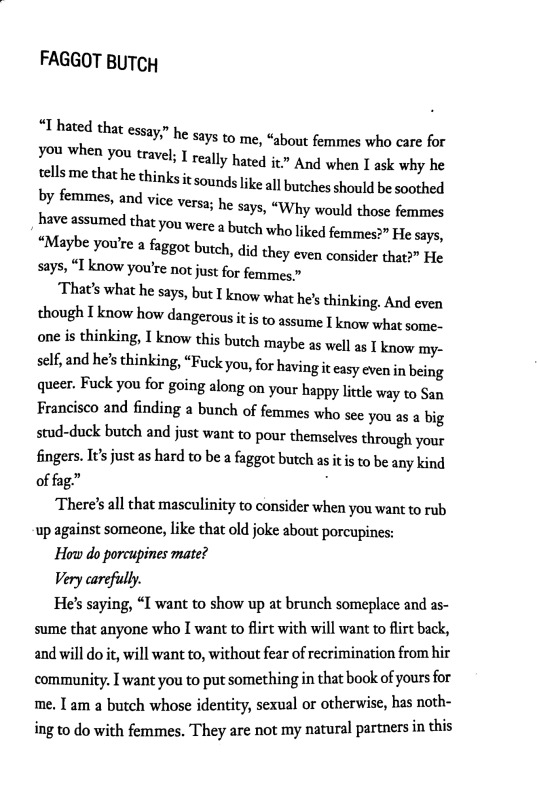
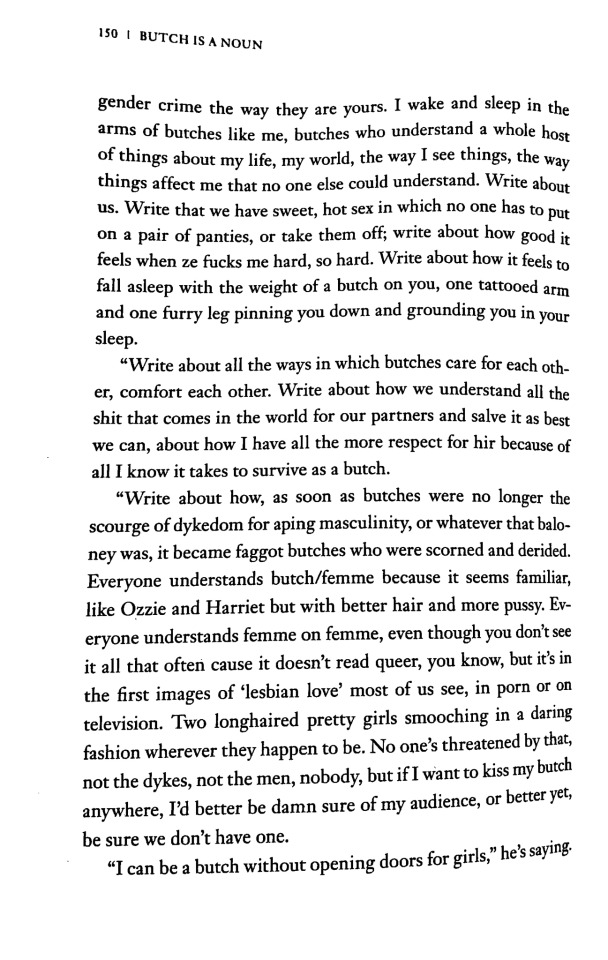


butch is a noun, s. bear bergman 2006
12K notes
·
View notes
Text
for this fourth of july I just wanna say: fuck this stupid ass racist ableist classist piece of shit country. fuck this bill that will kill MILLIONS of people and will kill the planet. fuck the oligarchy. fuck the military. fuck “border protection.” fuck the billionaires. fuck anyone who feels “patriotic” to be american.
20K notes
·
View notes

